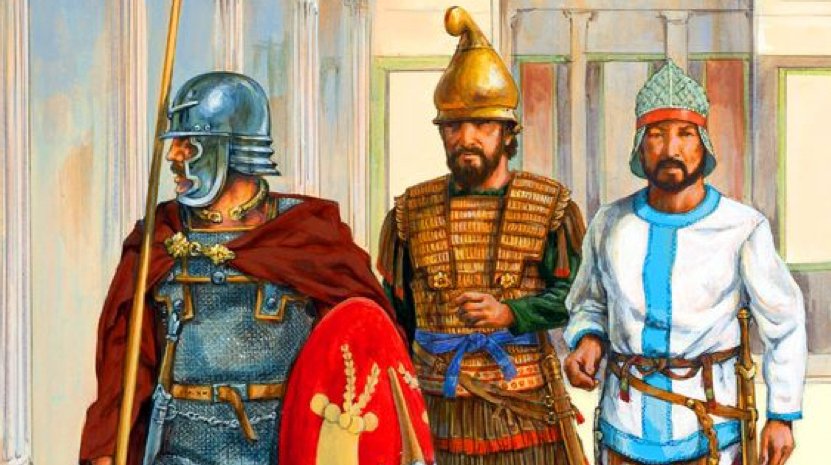Nov 4:CPT Marvel
Matthew 8 and Luke 7 each depict different versions of an exchange between Jesus and a man known to the Church as “The Centurion of Great Faith.” That epithet is more vague than it needs to be, since we can actually know quite a bit about this officer of Capernaum.
A Judean Officer
Both Gospels agree that on the man’s rank and location, placing him in aristocratic circles of Antipas’ numerii. Luke is clear that he is not a Jew, with the elders speaking of him in the third person, “he loves our people, and it is he who built our synagogue for us.” (Luke 7:5) This was not unusual, as Galilee was a diverse place, one regarded by devout Jews as "the district of the nations” (Isaiah 9:1). He was a Judean in the geographical, not religious, sense.
As civilians, the Gospel writers were not familiar with military culture. The word used, hekatontarchēs, was a placeholder for any seemingly high-ranking soldier. As any grunt will tell you, “sergeant” could describe any number of military ranks with vast differences in social implications. Centurion was like that, but for the Roman military, it could refer to someone overseeing 100 men of a century (primus ordines, a First Sergeant) 600 men of a cohort (pilus prior, a Master Sergeant), or all 6000 soldiers of a legion (primes pilus, a Command Sergeant Major).
Although a centurion of Roman auxilia would have been the equivalent of an enlisted rank, if he was wealthy enough to own a slave, he was probably a Galilean noble. In modern parlance that makes him an officer, and if he commanded about 100 Soldiers instead of Herodian numerii, he’d be an O-3, a Captain.
Artist’s rendering of Herodian forces of the 1st century CE.
His Great Faith
Then there is the reaction he inspires in Jesus. In Greek, he is thaumazō, which can get translated into English as either “amazed” or “marveled.” What Jesus says next reiterates CPT Marvel’s otherness, doubling down on his non-Jewishness, ‘nobody, not even in Israel, have I seen such faith.’ (Matt 8:10, Luke 7:9) What sets this soldier’s faith apart, makes it so… holy?
Humility.
In each account, the point the story makes is how this powerful local soldier makes a hard and fast distinction between his little worth (hikanos; Matt 8:8, Luke 7:6) and Jesus’ great power (exousia; Matt 8:9, Luke 7:8). The contrast is heightened by the parallels he draws between the two of them; they are both called Lord and both have “authority, with soldiers under [them].” The earthly power CPT Marvel possesses is a pale comparison, but it is a comparison. Jesus commands the Militia Dei, with all (soldier) saints as well as “more than twelve legions of angels” at his divine disposal.
CPT Marvel may be a valuable asset of a rodent-centered conglomerate, but he’s also an unassuming soldier who knows that Jesus is the ultimate commander-in-chief.

